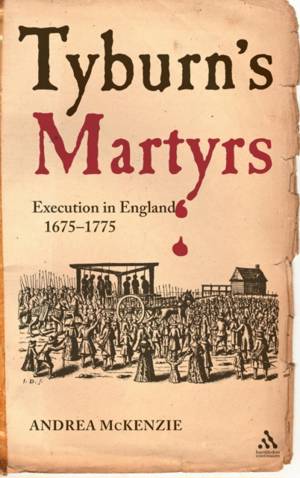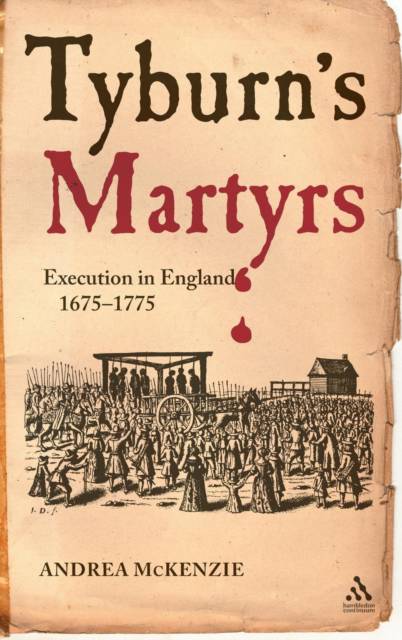
Bedankt voor het vertrouwen het afgelopen jaar! Om jou te bedanken bieden we GRATIS verzending (in België) aan op alles gedurende de hele maand januari.
- Afhalen na 1 uur in een winkel met voorraad
- In januari gratis thuislevering in België
- Ruim aanbod met 7 miljoen producten
Bedankt voor het vertrouwen het afgelopen jaar! Om jou te bedanken bieden we GRATIS verzending (in België) aan op alles gedurende de hele maand januari.
- Afhalen na 1 uur in een winkel met voorraad
- In januari gratis thuislevering in België
- Ruim aanbod met 7 miljoen producten
Zoeken
Omschrijving
The public execution at Tyburn is one of the most evocative and familiar of all eighteenth-century images. Whether it elicits horror or prurient fascination - or both - the Tyburn hanging day has become synonymous with the brutality of a bygone age and a legal system which valued property over human life. But, as this fascinating cultural and social history of the gallows reveals, the early modern execution was far more than just a debased spectator sport. The period between the Restoration and the American Revolution witnessed the rise and fall of a vast body of execution literature - last dying speeches and confessions, criminal trials and biographies - featuring the criminal as an Everyman (or Everywoman) holding up a mirror to the sins of his readers. The popularity of such publications reflected the widespread, and persistent, belief in the gallows as a literal preview of 'God's Tribunal': a sacred space in which solemn oaths, supernatural signs and, above all, courage, could trump the rulings of the secular courts. Here the condemned traitor, "game" highwayman, or model penitent could proclaim not only his or her innocence of a specific crime, but raise larger questions of relative societal guilt and social justice by invoking the disparity between man's justice and God's.Â
Specificaties
Betrokkenen
- Auteur(s):
- Uitgeverij:
Inhoud
- Aantal bladzijden:
- 336
- Taal:
- Engels
- Reeks:
Eigenschappen
- Productcode (EAN):
- 9781847251718
- Verschijningsdatum:
- 1/12/2007
- Uitvoering:
- Hardcover
- Formaat:
- Genaaid
- Afmetingen:
- 165 mm x 236 mm
- Gewicht:
- 703 g

Alleen bij Standaard Boekhandel
+ 388 punten op je klantenkaart van Standaard Boekhandel
Beoordelingen
We publiceren alleen reviews die voldoen aan de voorwaarden voor reviews. Bekijk onze voorwaarden voor reviews.









